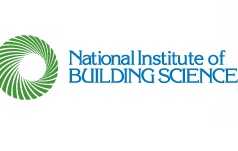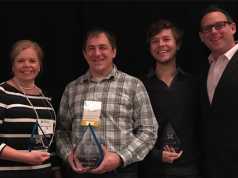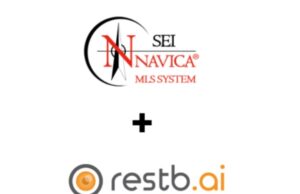Building Innovation 2016 Conference Track One to Provide the Guidance, Set the Groundwork
Will Look at People, Processes, Tools and Technologies to Reach Resilience
WASHINGTON, D.C. – August 4, 2015 – (RealEstateRama) — The U.S. building industry is facing significant challenges: addressing the impacts of climate change; achieving sustainability; assuring asset and community resilience; and managing risk. At the same time, it is widely recognized as a fragmented industry with divergent interests and priorities. The need and the opportunity to address these challenges—that affect the industry and the nation as a whole—has never been more critical, but it must be done through the implementation of strategic and collaborative approaches. At Building Innovation 2016: The National Institute of Building Sciences Fourth Annual Conference & Expo,Achieving a Resilient Future, to be held January 11-15, 2016, in Washington, D.C., participants will examine multiple factors that drive the industry—from people and processes to technology and information—to help establish an effective path forward.
Track 1: Guidance and Groundwork – People, Processes, Tools and Technologies to Reach Resilience will examine the impediments the building industry faces to achieving high-performance building goals and highlight efforts currently underway to facilitate the transition to a high-performance built environment capable of meeting the challenges of the future. Track 1 consists of two one-day symposia.
On Wednesday, January 13, 2016, the Industry Leadership & Advocacy Symposium will look at People and Processes to Reach Resilience. Achieving resilient buildings and communities relies on a workforce with the knowledge and resources to effectively engage across all phases of the facility life cycle. Access to guidance, codes, standards and best practices expands the potential of the workforce to realize high-performance building and community goals. During this one-day symposium, speakers and panelists will discuss the efforts currently underway at the National Institute of Building Sciences and elsewhere that are driving advancements aimed at the people who operate the built environment and the processes they use in order to better achieve a resilient future.
Presenters will discuss a number of topics, including climate change, codes and standards, credentialing, energy efficiency, life-cycle performance, off-site construction, public-private partnerships, resilience, resilience management, risk management, sustainability and workforce productivity.
On Thursday, January 14, 2016, the Information Resources & Technologies Symposium will address the Tools and Technologies to Reach Resilience. Information and the tools to use it effectively are important fundamentals for the achievement of high-performance buildings and communities. Assuring that information is available at the most relevant time and in a format most accessible to the particular application or user requires significant consideration of information organization and interoperability. This one-day symposium identifies the current and emerging tools and technologies essential to the realization of high-performance and resilience goals. This symposium will build on the Industry Leadership & Advocacy Symposium’s discussion of the People and Processes to Reach Resilience, to be held on Wednesday, January 13, 2016.
Presenters will discuss a number of topics, including bridge information modeling, building information modeling, energy modeling, geographic information systems, high-performance building goals, information tools and technology, the Integrated Rapid Visual Screening (IRVS) tool, interoperability, open data, open standards, risk and resilience measurement and management, and web services.
During Track 1, a number of Institute councils, committees and programs will present their related work, including the Building Research Information Knowledgebase (BRIK); buildingSMART alliance (bSa); Commercial Workforce Credentialing Council (CWCC); Council on Finance, Insurance and Real Estate (CFIRE); High Performance Building Council (HPBC); Integrated Resilient Design Program (IRDP); Low Vision Design Committee (LVDC); National Clearinghouse for Educational Facilities (NCEF); National Council of Governments on Building Codes and Standards (NCGBCS); Off-Site Construction Council (OSCC); Science, Technology, Engineering and Mathematics (STEM) Education Program; Sustainable Buildings Industry Council (SBIC); and Whole Building Design Guide (WBDG).
Registration for Building Innovation 2016 will open on September 1, 2015. Attendees may elect to register for the full Conference or a single symposium. To find out more about the full Conference schedule and sign up for updates, visitwww.nibs.org/conference2016.
Sponsorship, exhibit and advertiser opportunities available! Find out more.













